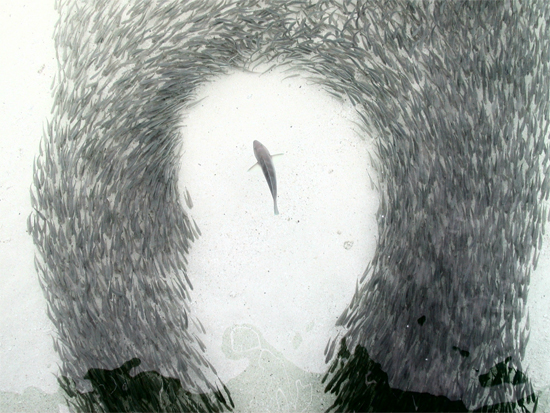Our research investigates the causes and consequences of animal behaviour, with a strong focus on marine organisms.
The questions we ask include;
- How do animals gather information from their social and physical environment, and how do they use this information to inform their behavioural decisions?
- What benefits do animals gain from behaving the way they do, and why do they not adopt other behavioural strategies?
- How do animals adapt their behaviour to different ecological or social environments, and what benefits, costs and constraints do they face when doing so?
We primarily use fishes as model systems to answer these questions. Our research framework uses theory-driven questions, manipulative experimental methods, and highly quantitative data acquisition techniques to analyse and interpret behaviour. We use this framework in controlled laboratory experiments as well as in the field to understand the outstanding diversity of behavioural adaptations in marine organisms.
Current research topics include:
- How do animals coordinate their behaviour in groups, and do conflicts exist between group members when coordination is achieved?
- How do animals make collective decisions together, and do individuals divide information gathering and processing efficiently between group members?
- What strategies can individuals use to reduce predation risk, and how can predators increase the likelihood of a successful attack?
- How does environmental noise affect animal movement, perception and behaviour?
- How do individuals differ in their perceptual and cognitive abilities, and do these differences affect individual and social behaviours?

